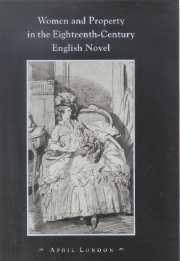Book contents
- Frontmatter
- Contents
- Acknowledgements
- Introduction
- PART I SAMUEL RICHARDSON AND GEORGIC
- Introduction
- 1 Clarissa and the georgic mode
- 2 Making meaning as constructive labor
- 3 Wicked confederacies
- 4 “The work of bodies”: reading, writing, and documents
- PART II PASTORAL
- PART III COMMUNITY AND CONFEDERACY
- PART IV THE POLITICS OF READING
- Epilogue
- Notes
- Bibliography
- Index
2 - Making meaning as constructive labor
Published online by Cambridge University Press: 14 October 2009
- Frontmatter
- Contents
- Acknowledgements
- Introduction
- PART I SAMUEL RICHARDSON AND GEORGIC
- Introduction
- 1 Clarissa and the georgic mode
- 2 Making meaning as constructive labor
- 3 Wicked confederacies
- 4 “The work of bodies”: reading, writing, and documents
- PART II PASTORAL
- PART III COMMUNITY AND CONFEDERACY
- PART IV THE POLITICS OF READING
- Epilogue
- Notes
- Bibliography
- Index
Summary
Those labors consonant with the georgic mode which were Clarissa's in the period before the moment of the novel's opening scene are bound up with the powers conferred on her by her loving grandfather. Such powers reflect his sense of the qualities that will later be impressed upon the reader as distinctive of Clarissa in her role as heroine: her dazzling virtue, her moral scrupulousness, her attention to social duties. But in this novel Richardson pursues a double strategy, isolating and idealizing the heroine's virtue to the point that she becomes “all mind” (555), while gradually transferring to Belford the associations with georgic that had at first been represented as unique to Clarissa. As a result of this transference, the meaning of the georgic mode itself and the narrative and cultural ends it can serve also undergo change.
As it is retrospectively invoked, Clarissa's status as heroine depends on her knowledge of her own worth and her dedication to labors that confirm her individual virtuosity. The pressure of events in the novel transmutes this artist figure possessed of “reputation” and “taste” into a tragic heroine whose preparations for death (especially the elaborately decorated coffin) nonetheless continue to speak to her aesthetic sensibility. Belford's labors, on the other hand, can be seen as self-denying rather than self-defining. As one of his duties as executor of her will, he compiles the text that justifies her title to consideration as “not only an ornament to her sex, but to human nature” (1363), even as it lays bare his own frailties.
- Type
- Chapter
- Information
- Publisher: Cambridge University PressPrint publication year: 1999

